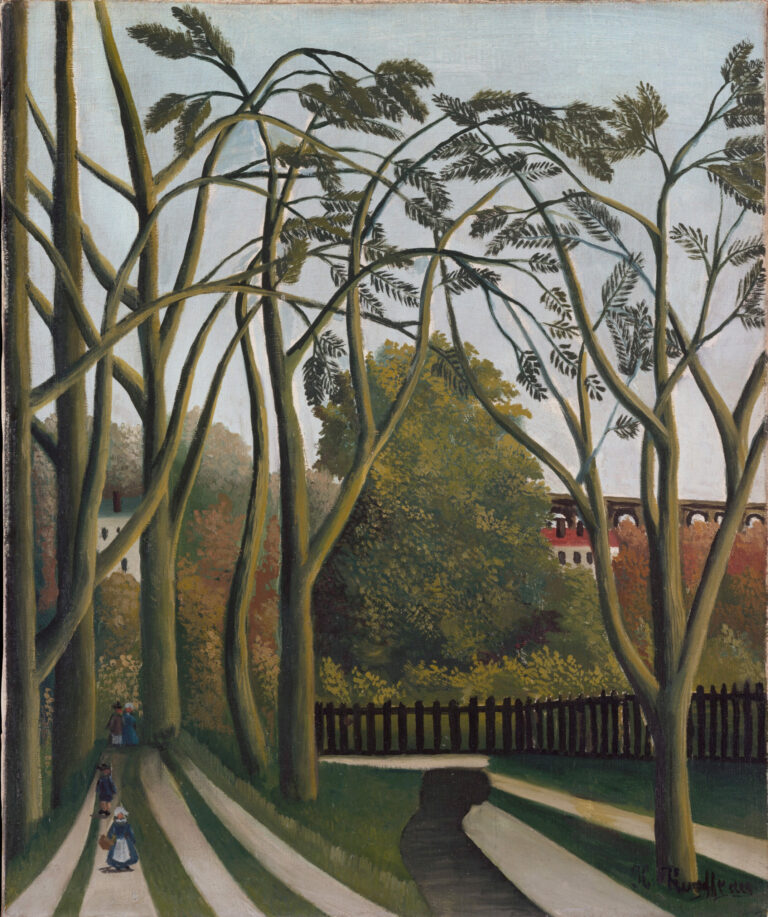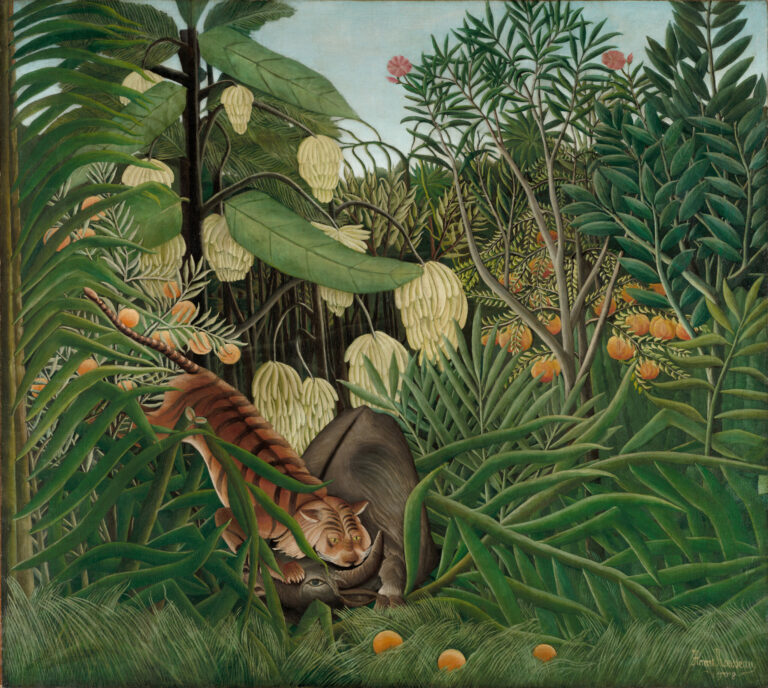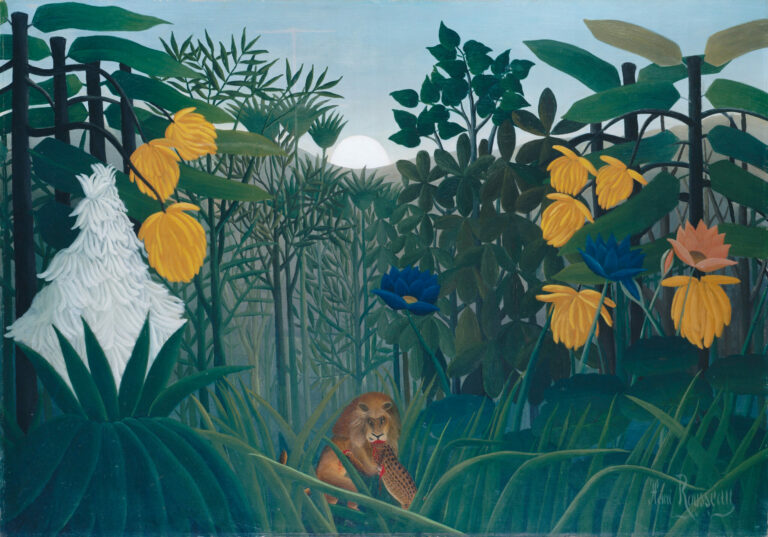Henri Rousseau
Henri Rousseau (1844-1910), dubbed “Le Douanier” despite being a customs officer rather than a true douanier, epitomizes the revolutionary spirit of self-taught genius in art history. Beginning his artistic journey remarkably late at forty, this humble Parisian civil servant developed a naïve style of striking originality, crafting lush jungle scenes and exotic landscapes without ever leaving France, drawing inspiration from the greenhouses of the Jardin des Plantes and travel narratives. While dismissed by the official critics of his era for his “primitive” technique and fantastical perspectives, Rousseau was swiftly embraced by the Parisian avant-garde—from Picasso to Apollinaire, Kandinsky to Delaunay—who recognized in him the authentic embodiment of popular art and the refreshing vision of creativity uncorrupted by academic training. His canvases, executed with meticulous precision despite their apparent “primitivism,” reveal a unique poetic universe where dream and reality converge, prefiguring Surrealist investigations and profoundly influencing modern art through their disarming sincerity and unbridled imagination.



